Staff Book Reviews by Genre: Historical
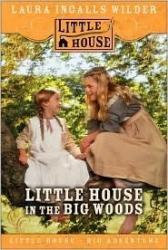
Lovely book. It moves slowly and gently and paints a dream-like portrait of life in the woods in the 1870s. Nothing really exciting happens, but that's the beauty of it.
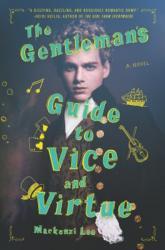
In the 18th century, it was rather common for young wealthy English folks to embark on a Grand Tour of continental Europe between their school years and their careers or higher education. Henry “Monty” Montague’s Grand Tour, however, is anything but common. Monty’s formal education at Eton ended rather abruptly, due to being caught in a rather compromising situation with another one of the boys. Now his future as his father’s heir is in jeopardy, and his tour is his last chance to redeem himself.
So it is that Monty departs for the continent, knowing that if he doesn’t manage to behave himself (at least in his father’s eyes), he’ll be left penniless. He’s accompanied by his younger sister, Felicity, herself off to a school in France, and his best friend Percy, who will be leaving England for law school at the end of their tour.
Monty naturally feels a bit overwhelmed by the mounting pressure on him to completely turn his own life around. However, understanding the plights of others isn’t something he’s ever been good at, and Felicity and Percy each have their own deep concerns about what awaits each of them at the end of their trip. None of them expect Monty’s knack for attracting trouble to draw them into a web of intrigue that leads them from France to Spain to Italy, pursued by highwaymen, pirates, and vengeful nobles. And none of them, least of all Monty, expected him to fall desperately in love with Percy along the way…
The Gentleman’s Guide to Vice and Virtue by Mackenzi Lee was everything I wanted it to be and more. Adventure, mystery, and romance all fall neatly into place in this YA treasure. It’s available now, so do yourself a favor and pick it up.
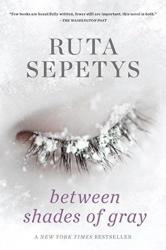
This is an amazing book. So stark and unforgiving, written exactly like Siberia and the arctic circle. This isn't an autobiography but it sounds like it could be. I have no doubt that Lina's circumstances happened to thousands during Stalin's reign. The writing was so realistic I could feel the wind and the cold and every terrible thing that came with it.
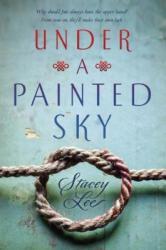
Under a Painted Sky was just okay for me. The book was probably very similar to being on the Oregon Trail - every once in a while something exciting would happen but for the most part, you're on the trail with a long stretch of boring ahead of you! That being said, I really do like the fact that Stacey Lee used a "historical" setting to present two strong, multicultural female characters. Annamae (African-American) and Samantha(Chinese) came into each others lives at a critical time and in the end, they realize that you can choose your family. Also being accepted for who you are was a central theme. But I felt Under a Painted Sky was a historical novel with not much history. The story takes place on the Oregon Trail, and we do hear of some of the hardships of traveling that the pioneers faced, but Stacey Lee only did one mention of Native Americans in the book. One sentence about the Cheyenne. It's hard to believe that on the trail, they didn't encounter any Native Americans. I think this book will be popular with teen girls. They will love the romance!
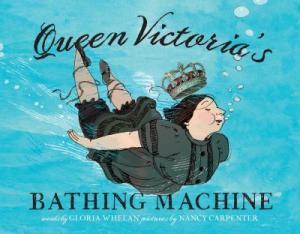
A great, rolling doggerel accompanies this story about finding a way to allow the queen to enter the sea without any part of her being “seen!” Funny and factual, this will be a fun read for you and yours.
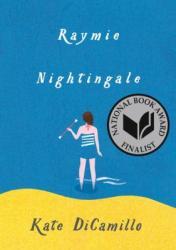
The best way I can describe Raymie Nightingale is to say that it is a book you can fall into. Kate DiCamillo is a master of characters and story, and Raymie Nightengale is no exception. This author weaves magic through words. We enter Raymie’s life mid-stream; she is ten years old and floundering a little. Through some new, strong friendships, she discovers strength in numbers – and in herself. The subject matter might be a bit much for some. Raymie’s dad has “run off” with a dental hygienist. But DiCamillo is never heavy-handed with the details and navigates the discomfort with aplomb.
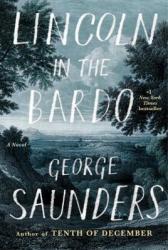
Hans Vollman died shorty before getting to consummate his marriage with his young wife. His spirit, full of regrets, stuck around the graveyard. The same is true for Mr. Blevins, who committed suicide because of his sexuality. No one really knows why the Reverend chose to stay in what amounts to purgatory, but he's there, and he mostly hangs around with Vollman and Blevins. Every night, those ghosts and more come out of their "sick boxes" to congregate. Until one night, a very special ghost arrives, and everything changes. Willie Lincoln arrives in the graveyard, and instead of immediately transferring to the "next place" as most young children do, he sticks around. Lincoln in the Bardo follows the ghosts and their reactions to the younger Lincoln and his very special visitor, his father, the living sitting president, Abraham Lincoln.
First, I listened to this book, and while the audio performances were stunning, it was initially extremely confusing for this listener. I had no idea what was happening for the first disk, and considered quitting the book entirely. However, after reading the synopsis on the back and a few online reviews, I stuck with it, and I'm glad I did. Like I said, the audio performances were stunning. Nick Offerman (Vollman) and David Sedaris (Blevins), in particular, deliver masterful performances. Along with exposition from the ghosts, there are interstitial segments that use actual quotes from newspapers and other sources from the time , and it's here that the narration goes into overkill. The audiobook features 160 narrators, and I think that instead of having a different person read each quote, the story would've flowed a little better had our narrator just read the quotes.
The book itself is an interesting paranormal postmodern story that has elements of historical fiction that also takes a long hard look at death, grief, and coming to terms with one's lot in life. There's a lot going on, but after the first sixth of the story, I was hooked, and I really started to care about Blevins and particularly Vollman. This book is short on plot, but that's not the point. This is a character study that also examines life, death, and whatever might lie in-between. As the book is set at the beginning of the civil war, there are some heartrending accounts from the ghosts of slaves, and some maddening accounts from dead confederate soldiers. The book is a bit of an emotional roller coaster, but as I like books that make me feel things, that wasn't a problem for me. This book will make most people feel something, be it ire, or sadness, or confusion (it's been a while since I've read a postmodern book, and the format was occasionally jarring).
While this was at first a difficult listen, I ultimately ended up enjoying it. I would recommend reading the book, and then revisiting it as an audiobook to enjoy the fabulous performances. A challenging, but worthy read. 3 stars - I liked it.
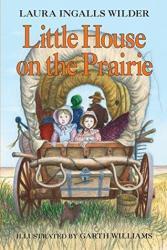
Such a classic. You might think that a book about frontier life on the prairie would be boring, but it's not. Well, I did skip a few places that detailed the construction of the cabin etc. Otherwise, it's relaxed in most places and downright exciting in others. The book is told from the perspective of the middle daughter, Laura Ingalls. I love that the author is writing about her family. Thumbs up!
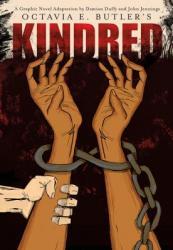
Octavia Butler's Kindred broke so much ground both as a flawless time travel novel and visceral retelling of the slave experience. As an African-American author writing science fiction, her body of work changed the field while winning its top honors -- the Nebula and Hugo awards -- and the author herself was awarded a MacArthur genius grant. This graphic novel is an excellent introduction to her work, and is highly recommended for YA and adult readers alike.
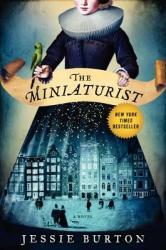
Set in 17th-century Amsterdam, the book follows the life of young bride, Nella Oortma, and her marriage to the wealthy merchant trader, Johannes Brandt. Johannes is kind but distant, leaving Nella feeling alone in his large estate. Nella receives an elaborate wedding gift from Johannes—a cabinet-sized dollhouse replica of the Brandt estate. Nella’s life takes a mysterious turn after she employs a local miniaturist to furnish the tiny house with replicas of the residents of the estate. I enjoyed the book and found it to be a fast read. The author’s rich description of people and places made the Old World setting come alive. Every chapter, the reader is reminded that not everything is what it appears to be.
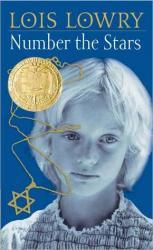
This is a powerful quick read with an engaging story line. Yes, Holocaust books are a dime a dozen, but this one is on top of the heap. The location of the book in Denmark also separates it from the rest. I was struck by the idea that it's easier to be brave when you don't know more than you need to to complete a task. Well done.
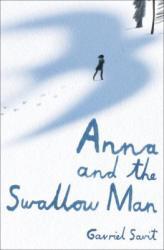
In Poland in 1939, seven year old Anna's father went to work one day, never to return. As such, she finds herself learning to survive under the care of a stranger that she knows only as "the swallow man". Together, they escape Russian and German soldiers and travel the Eastern European countryside as they try to survive and make sense of the world that seems to be crumbling around them.
As this won the Odyssey Award (excellence in audio production) last year, I decided to give it a listen and I'm so glad that I did. The narration was excellent, but it would've been great even with a lesser narrator. This is a brilliantly written book that covers so much ground physically, metaphysically and metaphorically. Many things the Swallow man says or that Anna thinks are steeped in rich allegory and open for interpretation. Some of the things said are merely simple truths. Almost all of it feels somehow important and relevant. For example:
“The world as it exists is a very, very dangerous place.”
and
“Human beings are the best hope in the world of other human beings to survive.”
and
“Normally, her mind was like a busy beach - all day long she would run back and forth, leaving footprints, building small mounds and castles, writing out ideas and diagrams with her fingers in the sand, but when the night tide came in, she would close her eyes and allow each wave of rhythmic breath to wash in and out over her day's accumulation, and before long the beach would be clear and empty, and she would drift off to sleep.”
That, folks, is how you write prose. Insert clapping emoji here.
Plotting takes the background as this book is all about character development and parables and life lessons. It's about the importance of language, and people, and what it takes to stay alive when there's a war on. It's about being human and growing up. It's about family and love and necessity. It's about war. It's brutal and human and tender all at same time. And it's very, very good. 4 stars.
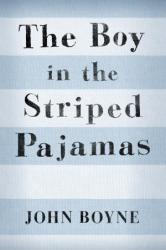
I read this book in almost one sitting. It was very good and very sad. I thought the ending was a bit abrupt, but that's my only complaint. I think it would make a good play.
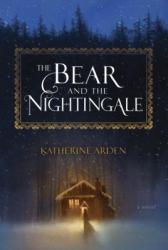
The Bear and the Nightingale is a Russian fairy tale(s) retelling that follows Vasilisa (Vasya) as she comes of age in the harshly beautiful Russian countryside. After her mother dies in childbirth, Vasya develops a kinship with the house spirits that protect her home, village and the surrounding countryside from any evils that lurk in the woods. All is well until her father decides to remarry. Her new stepmother is deeply religious and sees the house spirits as demons; a newly arrived monk further enforces these believes. The townsfolk become afraid, and stop minding the house spirits. This leads to disaster and death as the evil lurking in the woods begins to creep ever closer. Vasya must work with the spirits to restore balance to her town, lest her town be completely consumed by evil.
As someone who grew up on a steady diet of Disney and fantasy books, I am a sucker for a good fairytale and this one hits the mark. It's very much a fairy tale for adult(ish) readers and the writing was so lovely and hauntingly atmospheric that it sometimes felt like I was the one traipsing through the Russian countryside. Vasya was a very likable character - headstrong and intelligent in a time where women were still viewed as a commodity, Vasya is not ok with her lot in life. She wants more than to just pop out babies for some lord; she wants to live her own life on her own terms. That struggle, set against the wintry backdrop of a magical Russian countryside, made for a very entertaining read.
While the writing and most of the characters were fantastic, I did have a few issues with the book. I loved the beginning and ending, but struggled mightily with the middle. Many side plots that barely had anything to do with the story were introduced and never resolved. This is explained by the fact that this book is the first in a series, but I feel like the story would've been better served to focus on the main plot.
Meandering middle aside, this was a great read. This book demands to be read under blankets or near a fireplace on a cold day. Pick it up and prepare to be transported to the snowy fields of the Russia of yore. 3 stars.
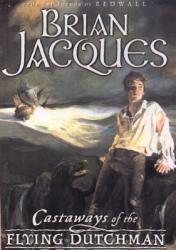
To be honest, I wasn't sure I was going to finish this book. It was hovering around a 2 (Meh) when all of a sudden the author gave it a left turn and I found myself in a good old fashion treasure hunt story. Like the 'Gold Bug' by Poe, it's full of great and cryptic clues to unravel. Fantastic!! The author gives us a taste of the 'Flying Dutchman' legend and then joins us with a young boy and his dog who are traveling a strange road through life. There's three books in this series so if you like the adventure - enjoy.
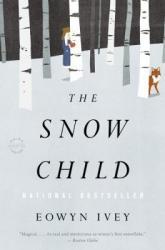
Set in the 1920’s, this is the story of Jack and Mabel, a childless couple homesteading on the Alaskan frontier. The workload is never-ending, and without children to help with plowing, planting and harvest, they struggle not only to survive, but to avoid losing themselves to despair and disappointment. It is a story not only of survival and grit, but also of the kindness found in a community of like-minded individuals and families. This theme is typical of much historical fiction about western expansion and pioneer life, but this story holds an unexpected and delightful twist, where magic, reality and fairytales intersect. The first snow of the year is met with a playfulness that is not typical of Mabel and Jack. They end their snowball fight by building a snow-child near their cabin, complete with mittens, a hat, and arms made from twigs. The next day, they discover that their snow child was destroyed during the night – likely by wild animals. Their journey from that point is full of hope and expectation. The story has a dream-like, ethereal quality, yet the author maintains the sense of solidity that is required for historical fiction to work. The pace is slow, but fits well with the time and place. I sincerely enjoyed this author’s first novel. It made me think about the importance of accepting others as they are – always an important consideration. I have Eowyn Ivey’s second book in my “to read” stack right now, and will eagerly read her future offerings.
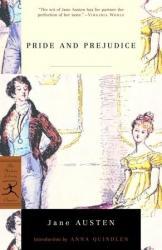
Reader beware, this is my favorite book. This is probably the fifth or sixth time I've read it. It's observant, subtle, and cleverly written. I come away with something new every time I read it. This time I felt for Elizabeth upon coming to the realization that her father was greatly to blame for the shortcomings of her three younger sisters. Oh, and Mr. Darcy's subtle devotion to her was more apparent to me this time around. It's easy to imagine the BBC version and characters while reading, but this book - like most books - is more richly constructed than the mini-series.
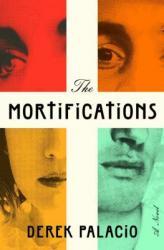
The Mortifications follows the Encarnacion family from Cuba to Connecticut and then back to Cuba again. Soledad's husband, Uxbal, is heavily involved in rebel groups resisting Castro's regime. She doesn't want her children growing up in that environment, and eventually she decides to take them and leave for America without her husband. Uxbal tries to hold her daughter Isabel captive, but she threatens to cut his son's throat if he doesn't let her take both their children. They escape successfully, but the incident leaves deep scars on everyone in the family. Soledad eventually begins a new relationship with Henri Willems, a Dutch man trying to cultivate Cuban tobacco in the US, and all the while she and her children drift further and further apart from one another as they try to adjust to their new lives.
The Mortifications is a leisurely-paced book and it draws rich portraits of all the characters: Soledad, who takes her children from Cuba to America to protect them but finds herself haunted by a lost marriage and country; Isabel, who took a vow to her father to remain chaste until she could have rebel children for his militia, and who later joins a convent in an effort to keep this vow; Ulises, a student of classical literature who feels abandoned by his mother, father, and sister alike; Willems, who is haunted by the idea that his tobacco holds the ghosts of the slaves his family once owned in Haiti; and many more minor characters who are written with equal depth and sympathy. It was a genuine pleasure to read -- beautiful writing, very introspective, and with enough humor to keep it from being too relentlessly depressing. That being said, it's a very (and I mean very) slow-paced book and is focused more on the internal lives of the characters than any cohesive plot, so that might be frustrating to readers looking for something with a little more structure. I would give it 3.5 stars, in large part because the writing was absolutely gorgeous.
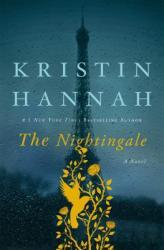
The Rosignol sisters, Vianne and Isabelle, have never been close. Each has learned to survive a traumatic childhood in her own way. On the eve of World War II as Hitler’s forces are invading France, Vianne remains in the family home with her daughter and waits for her husband’s return. Isabelle, young and head-strong, decides to play a more active role in fighting the Nazis. Over the course of five years, both sisters experience the horrors of war, fight for survival, and play a part in saving others. In the process, Vianne and Isabelle find their way back to each other and reconcile their differences. Whether or not you are a fan of historical fiction, you will become deeply involved in the lives of these two sisters. The Nightingale, while sentimental at times, will touch your heart and leave you longing to learn more about these two remarkable women.
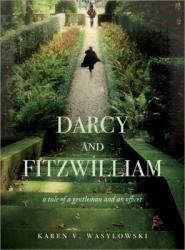
This is another telling of Jane Austen's "Pride and Prejudice". This story follows the trails and tribulations of the famed courtship from the point of view of Mr. Darcy and his cousin, Col. Fitzwilliam. Fans of "Pride and Prejudice" will enjoy receiving more insight into the classic romance.
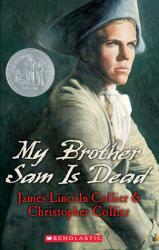
When I started this book I could not understand why it had been banned. It seemed so innocuous. I only read it because it was in the free pile where I work. I looked it up and it was for violence, language, and an unpatriotic view of the Revolutionary War. Fair enough. It is violent and unpatriotic for sure, which is why I liked it. It's also a very good story and is about as accurate an account of the Revolutionary War era as can be reasonably expected from a work of fiction for young people.
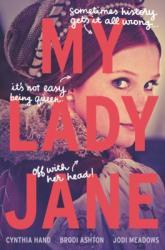
This was just delightful.
My Lady Jane is a semi-historical semi-fantastical look at the life of Lady Jane Grey, cousin to King Edward VI, who was queen for 9 days and then swiftly deposed and subsequently beheaded by Mary I (aka Bloody Mary). The book looks at the events through the perspectives of Edward, Jane, and Jane's new husband, Gifford Dudley (call him G). The authors decided to rewrite history a bit to give some folks shapeshifting powers and to give our Lady Jane a happy ending. The result was a charming, whimsical read written in the sarcastic and snarky prose of today, and it was marvelous.
The book is even more impressive when you consider that it has three authors, but felt as though it could have been written by one person (I'm sure that each author wrote from a different character's perspective, but it was never jarring). The characters were well fleshed out, each perspective was funny and interesting, and I never felt myself racing through one character's chapter to get to a character I liked better (because I liked them all). I'm a big sucker for court intrigue, and there is obviously a lot of that here. The fantasy elements are pretty small, and honestly, the book could've sort of been done without them, but they do give the authors an out for some of the less historical aspects of the book (like Edward's survival, for example).
I gave the book four stars instead of five as, though I loved the tone for most of the book, by the end it was feeling a bit twee. The book was also a bit overlong. Overall though, this is a great read that I would recommend to people who like quirky, well-written books about strong women with a touch of fantasy. I hope these authors team up to write another alternate history, because I'd so be there. 4 stars.
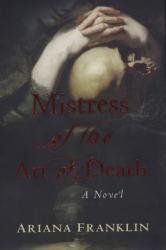
Set in medieval England, Adelia, a female surgeon, is hired by King Henry II as a forensic expert to investigate a series of murders taking place Cambridge. Even though it is a fictional novel, Franklin adds lots of historical details to the story, creating multiple layers to the plot. The murders are not the only mystery in this story, the characters themselves have their own veil of intrigue making the story all the more exciting!
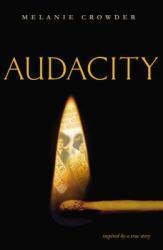
This book is written in prose. This annoyed me for about 20% of the book. Then I got used to it and started enjoying it. It's a powerful true story about a brave woman who stood up for the rights of working women and children. Whenever I read stories about brave women, I ask myself if I would have had the moxie to do what they did. The answer is sometimes yes and sometimes no. This one I'm not sure about. It take real guts to stand up to bullies (in this case sweatshop owners and their thugs). I've never been good at that. She was so determined and stubborn, and she persevered! Amazing.
Bonus: I read this book over Labor Day weekend and didn't realize it until after I had finished.
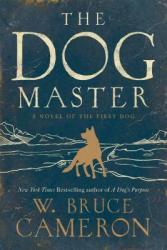
The Dog Master: A Novel of The First Dog will appeal to dog lovers, scholars and those with inventive imaginations. The novel attempts to answer the fascinating question of how and why the lives of humans and canines might have become so intertwined. W. Bruce Cameron brings to life the daily challenges of prehistoric humans so vividly that the characters become readily accessible to the reader. Despite the necessary leaps of creativity involved in writing a novel about early humanity, Cameron grounds the story with details based on his own extensive research of the time period and wolf behavior. The resulting story is both realistic and fanciful. It was fast-paced and entertaining, but also made me want to raid the nonfiction section to study ancient history after I finished the book. The book hops between timelines and story-lines, so can sometimes be a bit difficult to keep track of, but the different perspectives are relevant and add depth to the story. The subject matter appeals to our deepest curiosities of what it means to be human and its portrayal of the beginning of the human/dog relationship is relatable to anyone who has formed a bond with a dog.
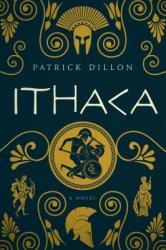
Ithaca is an Odyssey retelling, but told from the perspective of Odysseus' son, Telemachus. The first third of the book focuses on Telemachus' experiences on Ithaca up to the present day of the book. Odysseus has been gone for 16 years, and has been missing for eight, and other, strange men have started to live on Ithaca in hopes of becoming its new chief and marrying Penelope, Odysseus' wife. Telemachus eventually decides to take a journey to see Nestor on Pylos in order to find his father, and ends up travelling a little more extensively than he perhaps originally intended. In the next third of the book, we basically get the events of Odysseus' trip home from Troy as explained by Odysseus and a bard. The last third of the book follows Telmachus as he returns from his trip to find Odysseus, and then discovers that the man himself has come home.
The decision to retell the Odyssey from Telemachus' point of view was a great one, and it's those parts of the book that were, to me, the most successful. The book actually ends up being a great coming of age tale set against the backdrop of Greek mythology and culture. It made for an interesting read, and Telemachus' character and his relationship with his parents was flawed in a really genuine way. A+ for character development. However, the second third of the book, the sum up Odysseus' return journey bit, I could've done without. I read The Odyssey ages ago (in high school, like one does), but it's still enough of a pop culture reference (and yeah, I've read the Riordan books too, so that helps) that I knew the story already, and that part felt a little disjointed. I get why it was necessary, but ultimately, it harmed the narrative a bit. You are kind of pulled out of Telemachus' story to read the "best parts" version of Odysseus' journey, and it just felt rushed.
The Odysseus part aside, though, I really liked this book. I find myself liking it more and more the more I think about it. It's one of those books that stays with you for a while. If you are looking for a fantastical, gory, and ultimately very human coming of age tale, then this is for you. 4 stars.
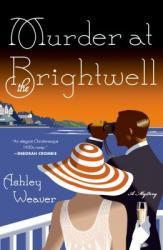
Amory Ames has left her philandering husband for a vacation by the sea with her erstwhile fiance on the pretense of talking his younger sister out of marrying her dastardly fiance. After a day of vacation, the dastardly fiance is murdered and the erstwhile fiance is suspect #1. Amory is convinced her old fiance is innocent, and works to clear his name.
At first, I was not at all sold on this book. The beginning is very slow and weighed down by constant descriptions of the sartorial choices of the many characters. The main character also initially comes off as a bit of a prickly doormat. Fortunately, about halfway through the book, the pacing picks up, the story gets really interesting, and our main character gets much less annoying. Her relationship with her husband, however, never ceases to be annoying because...did people not talk to each other in 1930s England? It was an unapologetically unhealthy relationship that was ultimately frustrating to read and was left (purposefully) unresolved at the end.
I don't read a ton of mysteries, but this one ended up being a lot of fun! Its kind of like an old school mystery where there is a cast of characters/suspects in one setting and you KNOW one of them did it...but which one? Based on what other readers have said, it's Agatha Christie-esque. I was able to guess the "who" but not the "why", and the book ended up being entertaining enough that I immediately checked out the sequel, Death Wears a Mask. I'd recommend it to mystery lovers who like their mysteries with a historical setting and a touch of fashion. 3 stars.
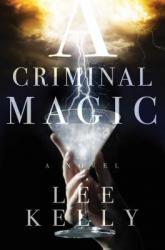
After the 18th amendment passed, magic became illegal. Shine, an addictive hallucinogen created as a by-product of sorcery, is the main reason behind the prohibition. So, of course, a seedy underworld of gangsters trafficking in shine immediately springs up, and it is embroiled in this underworld that our two main protagonists, Joan and Alex, accidentally and not-so-accidentally find themselves. As they are both sorcerers, Joan and Alex must figure out how to use their sorcery to survive the crime syndicate and it's machinations.
This is a fun fantasy read that is fairly original in it's premise and setting, with likable and believable characters. The premise does most of the heavy lifting, as gangs set in the 1920s trafficking magic gives Kelly lot to work with. She doesn't disappoint. The gangsters are pretty fearsome and the body count ratchets up quickly. The pacing is tight, and the magic is both deadly and beautiful. Joan is a performer, and the descriptions of the performances themselves are somewhat bewitching.
I did have a few problems with the book. First, while the two main characters were fleshed out and developed, almost none of the other characters got any development, and those that did were then basically ignored for the rest of the book. So when the secondary characters started dying, I didn't really care all that much. And then there's the relationship between Joan and Alex. I didn't mind it at first, but it did that thing that relationships in books often do of getting too serious too fast. It's not instalove, but it's instalove's cousin or something. I also felt that aspects of the 20s were wasted on this book - I wanted more flappers, insane clothing, and awesome music. We really only got the gangsters and the cigarette smoking.
For all it's problems, this fantasy novel was ultimately a great read. The ending was pitch perfect, and left the door open for a sequel. I'd recommend it to light fantasy readers looking for something without a ton of substance that is endlessly entertaining and a little different. I'd probably give it something like 3.5 stars, but since that's not an option, we'll go with 4. I quite liked it.
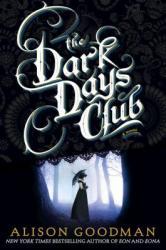
Lady Helen has lived almost her entire life in the shadow of her dead, treasonous mother. Because her mother did some shady stuff before she died, Helen has had to be the perfect demur lady, no small task for a quick witted woman in the Regency period. But as new information comes to light surrounding her mother's life and death, Lady Helen realizes that her mother had magical powers...that she passed along to her daughter. Soon, Lady Helen finds herself pulled into the dark underbelly of London as she works with the Dark Days Club to try to keep Londoners safe from a group of demons.
I really enjoyed the beginning of this book. There's a lot of world building, and Lady Helen is a very likable character who I think behaves in ways that make sense given the time period. There's a great build up to the reveal of the demons, and the mystery of Helen's mother and her powers unfolds very slowly and deliciously. The problem arises when the demons themselves are revealed. While I'll give Goodman points for originality with the demons and how they interact with humans, really, as villains go, they were pretty low-stakes and unfortunately kind of lame. I don't know, I mean, most of them follow rules and don't do anything bad, but they are hated by humans in the know just by virtue of the fact that they are human parasites, which really, isn't their fault. Things get a little more high stakes by the end, but I really couldn't make myself care. I actually put the book down for a week or so because I wasn't dying to know what happens, which is pretty rare for me.
I liked the setting, world-building, and the characters, and would maybe give the next book in the series a shot as the villains get a bit more villainous and less lame by the end. That and Goodman can write. She also clearly did her Regency homework. Overall though, for me this was just ok. 2 stars.
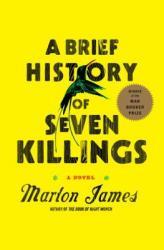
A very heavy, difficult book to get through, in part because it was written in dialect, which always takes some getting used to, but largely because it was so relentlessly depressing that I couldn’t read it for too long of a stretch. A Brief History of Seven Killings tells the fictionalized story of the (factual) 1976 assassination attempt on Bob Marley, referred to throughout simply as “The Singer”. Told from a staggering number of different perspectives, ranging from the young would-be assassins themselves, to the unemployed daughter of a middle-class family pretending to be pregnant with Marley’s child in an attempt to get out of the country, to a CIA agent assigned to keep communism from spreading to Jamaica, it’s a grueling, violent read, but there’s a lot worth hearing. The story begins with the assassination attempt, then jumps forward to sections set in the 1980s and 1990s, with close attention to Jamaica’s changing political scene and the lasting mark that violence leaves on the characters. The writing is strong and Marlon James does an excellent job juggling the huge cast (though if you’re like me you’ll probably have to refer back to the character list provided at the beginning of the book at least a few times). I don’t know if “enjoyed” is the right word, but I felt like I got a lot out of it, and it was certainly a deserving winner of the Man Booker Prize. I will say that the word “brief” in the title is a bit of a stretch -- it weighs in at 688 pages. Highly recommended for fans of historical fiction.